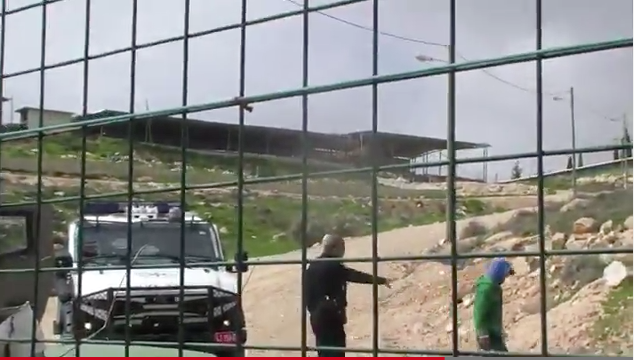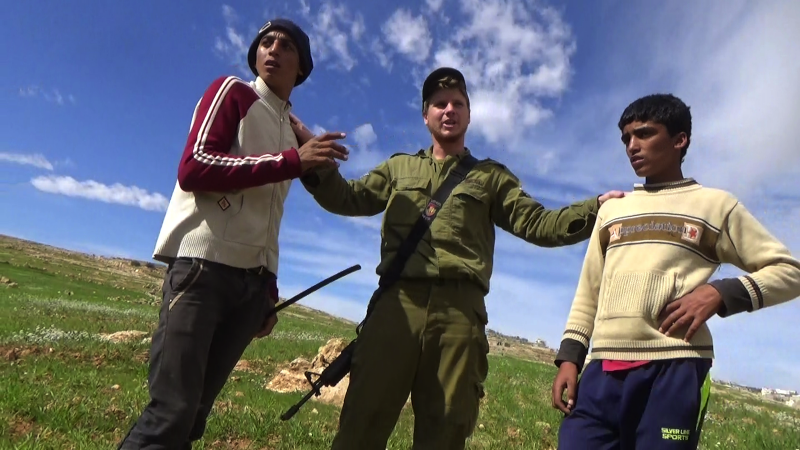Tag: South Hebron Hills
-
Israeli forces arrest two shepherds in the South Hebron Hills
5th March 2015 | Operation Dove | South Hebron Hills, Occupied Palestine On the morning of February 28, Israeli police arrested two Palestinian shepherds as they grazed their flock in the valley of Umm Zeitouna near the Israeli settlement of Ma’on. In late morning the security chief of Ma’on settlement and Israeli soldiers arrived in Umm Zeitouna valley…
-
Israeli settlers cut 36 olive trees in the South Hebron Hills
22nd February 2015 | Operation Dove | South Hebron Hills, Occupied Palestine On the morning of February 20, Palestinians in the South Hebron Hills awoke to find that 36 olive trees had been cut or seriously damaged during the night, probably by Israeli settlers. The 25 year-old trees, owned by the Hushiy family from Yatta, were located near the village…
-
Two Palestinian shepherds arrested in South Hebron Hills
8th February 2015 | Operation Dove | South Hebron Hills, Occupied Palestine On the morning of February 6, Israeli soldiers arrested two Palestinian shepherds, one of them aged sixteen. The soldiers tried to arrest another Palestinian shepherd but villagers prevented the arrest by popular nonviolent action. At about 10:40 a.m. four Palestinian shepherds were grazing their flocks…



